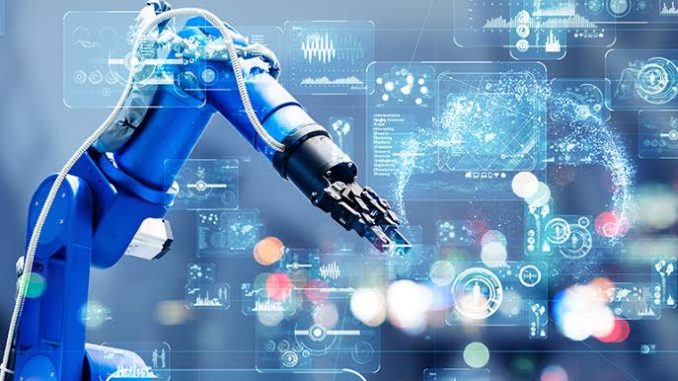
1. Artificial Intelligence (AI) and Machine Learning (ML)
AI and ML have become foundational technologies across industries. In healthcare, for instance, AI-driven diagnostic tools are now capable of analyzing medical images to detect diseases like cancer at early stages, significantly improving patient outcomes. In finance, AI algorithms can process and analyze massive amounts of data in real-time, allowing for predictive modeling and automated trading, which enhances decision-making and reduces human error.
AI also plays a transformative role in customer service, where chatbots and virtual assistants have become ubiquitous. They allow companies to offer 24/7 support, enhance customer experience, and reduce operational costs. Additionally, AI-powered recommendation systems, used by companies like Netflix and Amazon, have revolutionized the retail and entertainment industries by personalizing the user experience and increasing engagement.
2. Internet of Things (IoT)
The Internet of Things connects physical devices to the internet, enabling real-time data sharing and automation. IoT has immense applications in sectors such as manufacturing, agriculture, and logistics. In smart factories, IoT devices monitor machinery and detect potential issues before they lead to costly downtime, optimizing productivity and ensuring safety. In agriculture, IoT sensors collect data on soil conditions, weather, and crop health, allowing farmers to make data-driven decisions to increase yield and reduce waste.
In the transportation industry, IoT systems are improving fleet management by providing real-time tracking of vehicles, monitoring fuel consumption, and ensuring timely maintenance. Connected vehicles are not only enhancing safety and reducing emissions but are also paving the way for autonomous driving, which could reshape the automotive industry.
3. Blockchain Technology
Blockchain, the technology behind cryptocurrencies like Bitcoin, is having a transformative impact beyond finance. By creating a secure and transparent method of recording transactions, blockchain is addressing challenges related to trust, transparency, and data security across various industries.
In the supply chain sector, blockchain enables companies to track products from production to delivery, increasing transparency and reducing fraud. For healthcare, blockchain can securely store patient records, ensuring that data is accurate and accessible only to authorized individuals. The financial sector benefits from blockchain’s potential to expedite cross-border transactions, reduce fees, and eliminate intermediaries, making financial services more inclusive and efficient.
4. 5G Technology
The rollout of 5G is set to unlock unprecedented levels of connectivity and speed, which will have a ripple effect across industries. The healthcare sector will benefit from high-speed data transfer, enabling telemedicine to reach remote areas and facilitating real-time monitoring of patients via wearable devices. In manufacturing, 5G networks allow for faster communication between IoT devices, creating truly interconnected smart factories.
5G is also expected to drive advancements in autonomous vehicles, as the ultra-low latency of 5G enables real-time communication between vehicles and their surroundings. This technology will allow autonomous cars to make split-second decisions, improving safety and making autonomous driving a feasible reality.
5. Augmented Reality (AR) and Virtual Reality (VR)
AR and VR are transforming industries by creating immersive and interactive experiences. In the retail sector, AR allows customers to “try on” products virtually, enhancing the shopping experience and reducing the likelihood of returns. The real estate industry uses VR to offer virtual property tours, enabling potential buyers to explore homes remotely.
In healthcare, VR is being used for pain management, rehabilitation, and even surgical training. Surgeons can practice complex procedures in a virtual environment, reducing the risk of errors and enhancing their skills. In education, VR is making learning more engaging by allowing students to explore complex subjects, like anatomy or history, in a three-dimensional and interactive way.
6. Quantum Computing
Quantum computing, though still in its early stages, has the potential to revolutionize industries by solving complex problems that traditional computers cannot. In pharmaceuticals, quantum computing can accelerate drug discovery by simulating molecular structures and interactions, reducing the time and cost involved in developing new treatments.
In finance, quantum computing could enhance risk analysis and optimize investment portfolios by processing vast amounts of data at unprecedented speeds. The logistics industry can also benefit from quantum computing by solving complex optimization problems, such as route planning and supply chain management, leading to more efficient operations.
7. Biotechnology and Genetic Engineering
Biotechnology and genetic engineering are opening new frontiers in medicine, agriculture, and environmental conservation. In healthcare, technologies like CRISPR gene-editing allow scientists to alter DNA with remarkable precision, offering potential cures for genetic disorders and other diseases. The agriculture industry uses genetic engineering to develop crops that are more resilient to pests, drought, and disease, ensuring food security and sustainability.
Biotechnology is also being used to develop environmentally friendly materials and energy sources. For example, biofuels derived from algae can reduce carbon emissions, and biodegradable plastics can help reduce pollution. Genetic engineering holds promise for creating solutions to some of the most pressing global challenges, from climate change to food shortages.
Conclusion
Technological advancements are driving a wave of transformation that is reshaping industries and enhancing our quality of life. From AI and IoT to biotechnology and quantum computing, these innovations are solving complex problems, increasing efficiency, and opening new possibilities. As these technologies continue to evolve, they will undoubtedly bring new challenges and ethical considerations, but their potential to improve industries and our world is immense.